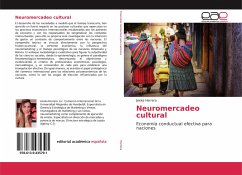The development of societies as time goes by has had a strong impact on cultural postures that have repercussions on international economic processes headed by consumption patterns and are responsible for stigmatising intercultural contexts, which is why this research is carried out with the intention of contrasting behaviour between nations. The theoretical compendium is directly linked to the historical-cultural perspective, the economic aspect, the influence of neuromarketing and the psychological management of the nations of Venezuela and Bolivia. The qualitative methodological approach to figure the subjectivity of the social sciences, from the epistemology, the phenomenological-hermeneutic paradigm is generated, distorting objectivism and evidencing the criteria of economic professionals, psychologists, marketers, and a consumer of each country to establish an effective triangulation. Likewise, the leading role of international trade in the psycho-economic relations of nations is emphasised, as are the biases of choice influenced by culture.








